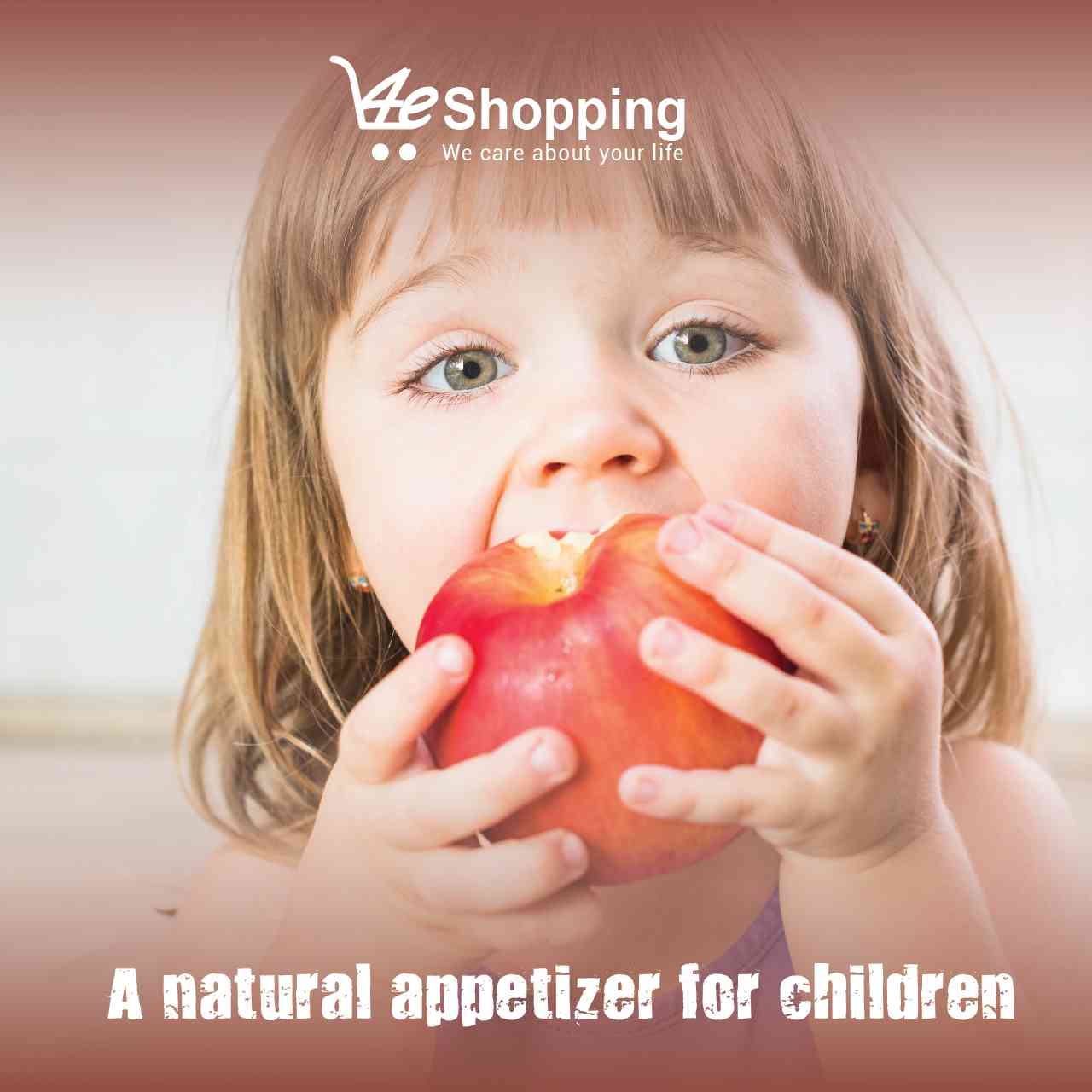
Pharmacist Pioneer Community. Why?
Jul 03 - 2022

What a problem that keeps mothers very anxious! It is nothing but fear for the health of their children, especially in the process of growth and development, which is critical to shaping their lives. The responsibility for proper and healthy nutrition is a great responsibility that falls on the shoulders of the parents, especially the mother owing to her love and attention to the smallest details. It is the nature of motherhood that begins with an embryo in the womb and her keenness to follow the instructions and take care of her food and nutritional supplements necessary for supporting her baby’s development, and continues after giving birth until her baby ages and his hair turns gray.
For a mother to see her child eating abstention and ongoing weakening, is undoubtedly a painful feeling for her. She tries and tries, tirelessly to open his appetite and desire for food, diversifying foods and changing its appearance, and it may come to forcing him to eat. Her attempts may be healthy and correct, but her intense anxiety may lead her to do some wrong behaviors that may harm his health, such as spoiling healthy food and behavioral habits and using harmful mixtures and medications.
How can you overcome this problem in the safest possible way?
In this article, we will talk in detail about:
Loss of appetite is a common symptom in children, and it is often transient, but if it is chronic, it may cause serious physical and psychological disorders.
The brain is responsible for the regulation of hunger and satiety; it allows the body to obtain its nutritional needs and not to overconsume more. The hormones produced by the pituitary gland regulates the secretion of insulin, glucagon and pancreatic enzymes, these substances are responsible for consuming, distributing and storing food as fat in the body. Any disturbance in this balanced process will lead to appetite problems that result in a disorder that leads to severe refusal for food or eating less than the normal quantities.
2 - Types of loss of appetite in children:
This loss of appetite is often temporary, as a result of bacterial or viral infections, and it ends with the recovery from the infection. It is common between the ages of 7 months to a 1 ½ years, where the child is exposed to many types of infection while the immunity is the formation and strengthening phase, and it also may result due to teething because of gum pain, irritation and sensitivity where the teeth are starting to grow.
It is considered somewhat natural because the physicals needs of children are less compared to the first year of life, and it is of course less than the needs of adults. The amount of food that the child consumes is very simple compared to adults. It is common between the ages of 1-6 years, but many times parents resort to forcing children to eat, thinking that it is healthy. So it is always recommended to know the child's nutritional needs from meals based on his age and not to increase meals or their quantities to avoid losing the appetite as a result of the psychological pressure the child is exposed to.
|
Time |
Suggested food |
Suggested quantities |
|
7 AM |
Breast milk |
½ a cup |
|
Cereal |
4 Tablespoons |
|
|
Minced fruits or fruit juice |
4 Tablespoons or ½ a cup |
|
|
Boiled egg |
1 |
|
|
10 AM |
Breast milk |
½ a cup |
|
12 PM |
Breast milk |
½ a cup |
|
Minced meat |
3 Tablespoons |
|
|
Rice |
4 Tablespoons |
|
|
Minced vegetables |
4 Tablespoons |
|
|
Peeled and diced fruits |
½ a piece |
|
|
3 PM |
Breast milk |
½ a cup |
|
Fruits |
½ a piece |
|
|
Biscuit |
2 pieces |
|
|
6 PM |
Yogurt |
½ a cup |
|
Minced cheese or chicken or fish |
30-60 gm. |
|
|
Minced vegetables |
30-60 gm. |
|
|
Rice or bread |
4 Tablespoons or ⅛ a loaf |
|
|
Potato |
½ a piece |
|
|
9 PM |
Fruit juice |
½ a cup |
|
Breast milk |
½ a cup |
|
|
+ 1 Cup of water/ Day |
||
18-month-old baby feeding schedule
It is one of the chronic diseases symptoms such as respiratory disease or kidney disease, or as a result of congenital heart defects, and here the loss of appetite is accompanied by other symptoms such as high temperature and anemia.
3 - Signs and Symptoms of Loss of Appetite:
Normally, the lack of children's appetite for food is not a worrisome symptom because as mentioned, it may be a result of infection or purely physiological processes, unless it is associated with the presence of other symptoms such as:
|
Age |
Weight (kg) |
|
Newborn |
2.5 – 4.3 |
|
1 month |
3.4 – 5.7 |
|
2 months |
4.4 - 7 |
|
3 months |
5.1- 7.9 |
|
4 months |
5.6 – 8.6 |
|
5 months |
6.1 – 9.2 |
|
6 months |
6.4 – 9.7 |
|
7 months |
6.7 – 10.2 |
|
8 months |
7 – 10.5 |
|
9 months |
7.5 – 10.9 |
|
10 months |
8 – 11.5 |
|
11 months |
8.5 - 12 |
|
1 year |
9 – 12.5 |
|
2 years |
10 – 15.5 |
|
3 years |
11 – 17.5 |
|
Normal weight according to age |
|
4 - Causes of loss of appetite:
When a child needs more attention from his parents, he abstains from food to concern them and get their attention.
Negative emotions (anger, sadness, fear) affect the child's appetite, and may limit the ability of digestive enzymes in the stomach to digest food and cause abdominal pain, nausea, and an aversion to food.
The child's appetite and rate of growth are directly proportional, since the speed of growth increases significantly during the first year of a child’s life then it slows down after that, his needs decrease, which is reflected on the amount of food he eats.
Due to the lack of iron-rich foods, it is expected that the child will develop anemia, which leads to weakness and tension of the child and increases the loss of his appetite for food.
This is one of the most common causes of loss of appetite in children and adults alike, but it is temporary and ends as soon as he is able to defecate, that is when he will begin to gradually restore his food ability.
The mother's resort to unhealthy food rich with harmful trans-fat, sugars and manufactured materials leads to the loss of the child's appetite for healthy home eating, such as vegetables, fruits, and others, and this will reflect on his health and expose him to anemia, loss of focus and irritable mood.
The eye, as they said, eats before the mouth. Food that is not varied in both form and colors is not interesting even for adults, so what about children? Diversifying the meal, with different shapes and colors, will grab their attention and their appetite will be better for food.
Loss of appetite has a psychological side that may last for life, forcing the child to eat more than his normal limit or eating something and exposing him to punishment and psychological pressure if he does not do so, this will worsen the matter and worsen his health and may result in psychological disorders.
The child's feeling of anxiety and tension due to lack of sleep, especially a deep night's sleep, may affect his digestive activity and make him abstinent food.
The painful teething stage makes the child refrain from eating to avoid more of that pain, but this soon goes away once this stage is over.
Oral bacterial or viral infections leads to loss of appetite because the child cannot tolerate more of that pain.
5 - Tips for treating loss of appetite in children:
In addition to healthy food and proper parenting, you can help your child with a nutritional supplement that contains all the vitamins and minerals that your child's body needs for growth, and to avoid the need for persuasion, we offer you Vitabella
Vitabella is a 100% natural chocolate fortified with more than 17 vitamins and minerals to open your child's appetite and strengthen his immunity:
Dose:
|
Age |
1-4- years |
Older than 4 years |
|
Daily requirement |
1 tablespoon/day |
2 tablespoons/day |
Vitabella 2 in 1, it is 100% effective and safe supplement for your child and at the same time it is healthy chocolate and its calories are few. 15 grams of Vitabella contains only 68 calories, allowing you to diversify his food throughout the day between home cooked food, vegetables, fruits and Vitabella chocolate.
“It is advisable to stick to the daily dose and not to exceed it, and to diversify the vitamins and minerals requirements between Vitabella chocolate and natural foods.”
*This article was written by an integrated medical team affiliated with Devart Lab, the leading company in the field of Nutraceuticals in Egypt and the Middle East (Nutrigenomics and Food Fortification), by providing nutrients that are fortified with minerals and vitamins that the body needs on a daily basis to obtain effective results in the least possible time. By using,the latest Pharmaceutical technologies that ensure full absorption without any side effects.